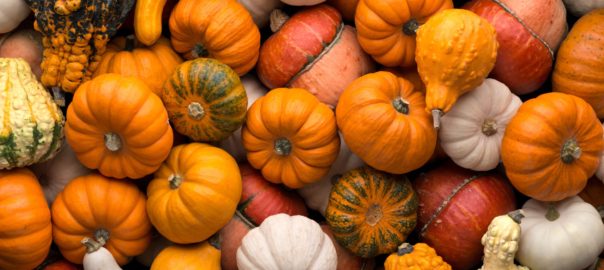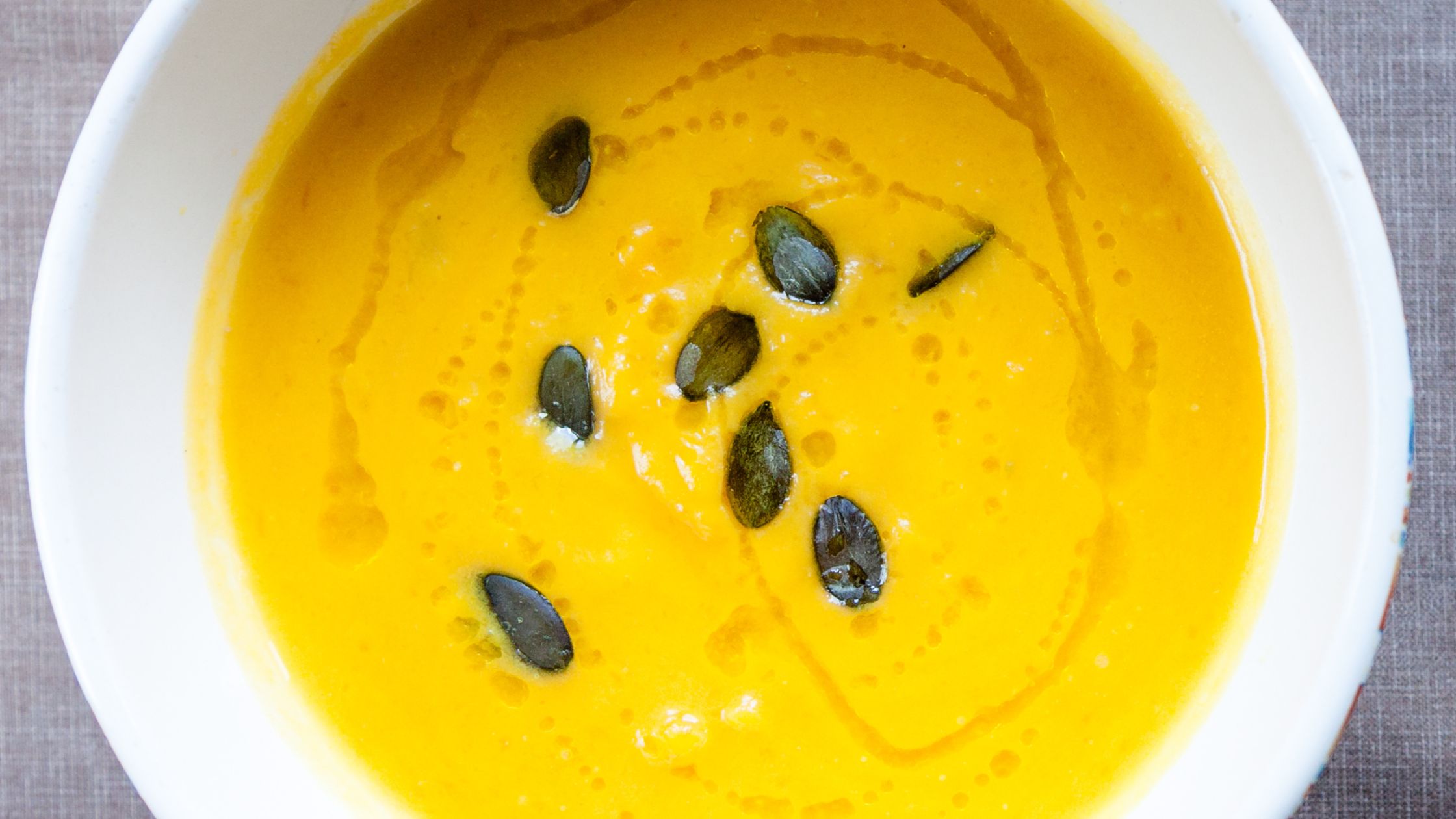Who doesn’t love pumpkin? Its hearty flavor is wonderful when combined with warming spices such as cinnamon, nutmeg, cloves, and ginger, making it a wonderful food for Fall recipes.
Fun fact, pumpkins grow on every continent except for Antarctica. Another interesting fact about pumpkins is that they are not just large orange orbs. Pumpkins come in many different colors, sizes, and shapes. Depending on where you live and what’s available, you can find red, yellow, white, or multicolored pumpkins. Some are long and some are short. Some are smooth, some are covered in wart-like bumps. There are mini pumpkins of all sizes and large pumpkins in between. Some pumpkins are best for carving while others are good for eating or making pies. And some are best used for unique Fall decorations.
Health Benefits of Pumpkin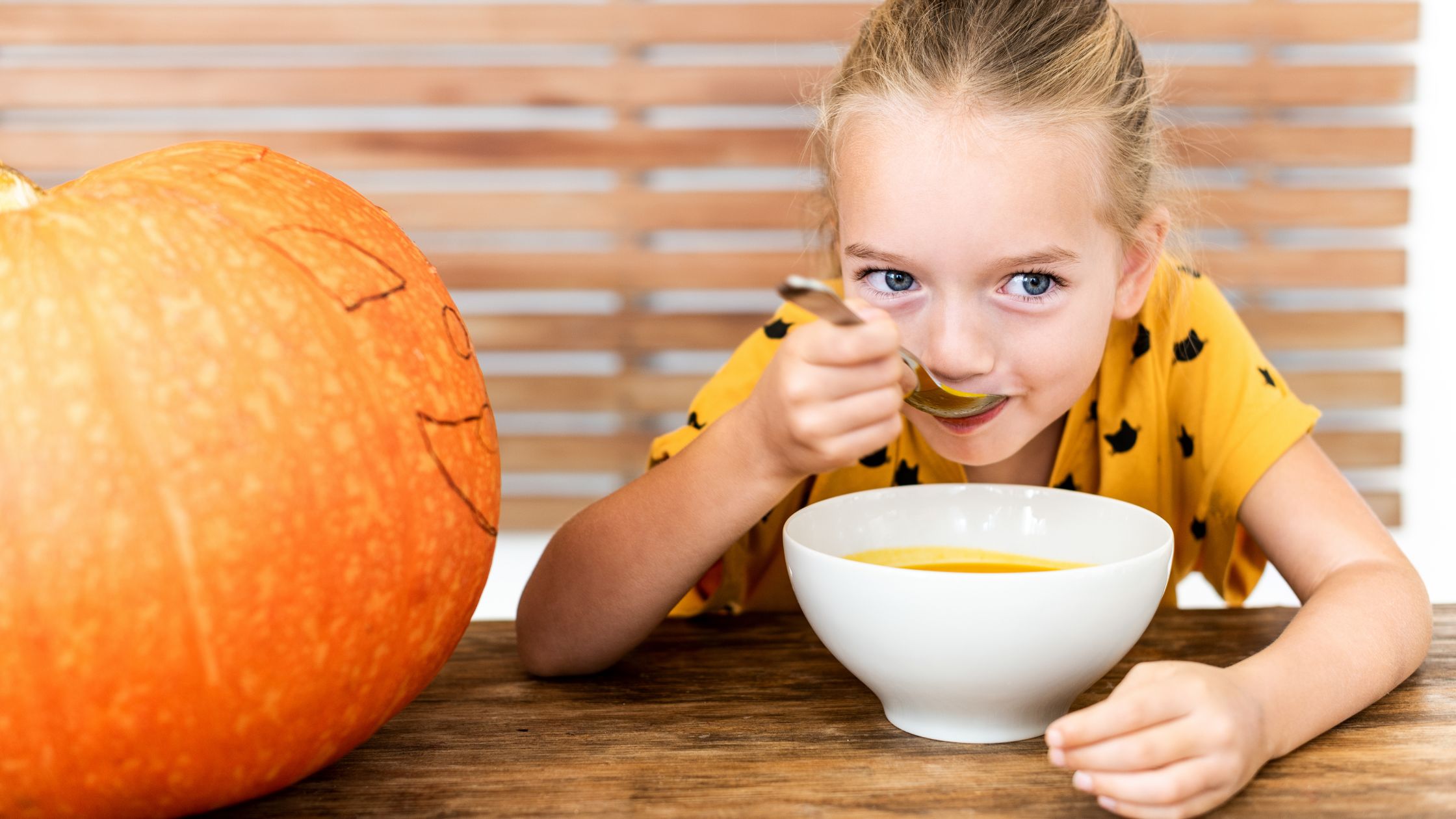
Although you probably know about using pumpkin in delicious recipes you may not know how healthy it is. Pumpkin can rightfully be considered a superfood. Not only is it low in carbohydrates and high in fiber, it also provides a good source of vitamin A, vitamin C, potassium, and phosphorus.
Although it’s technically a fruit, we tend to treat pumpkin like a vegetable. But whatever it is, it’s very versatile vegetable. Pumpkins are useful for cooking, baking, making soup, and even to replace either eggs or oil in baking
Fiber
Many people lack enough fiber in their diet. Due to it’s high levels pumpkin may help with bowel health, improving digestive wellness, regulating blood sugar, and reducing cholesterol.
Cardiovascular Health
Dietary fiber has been shown in studies to reduce cardiovascular disease risk in men and lower the mortality risk from stroke in women.
Eye Health
In addition to high beta-carotene content, pumpkin is also an excellent source of lutein and zeaxanthin. Both of these carotenoids have been shown to be supportive against cataracts and may help against age related macular degeneration.
Reduced Cancer Risk
Studies have shown a link between a diet deficient in beta-carotenes and cancer. Particularly cancers of the stomach, throat, and pancreas. Increasing beta-carotenes appears to reduce this risk.
Improved Skin Health
Because of its high beta-carotene levels pumpkin is a nutrient dense, high fiber food that happens to also be good for your skin. A diet high in beta-carotenes has been shown to help protect against UV-rays and may reduce photoaging from sun exposure. And when it comes to skin health, eating more vegetables, including beta-carotene-rich foods, may improve your appearance. A study found perceptible changes that were identified as being more attractive.
Pumpkin Recipe Tips
Now that you know about the wonderful health benefits that pumpkin has to offer it’s time to add more pumpkin to your diet. Here are some quick tips to add pumpkin to a wide variety of dishes:
Pumpkin Bites 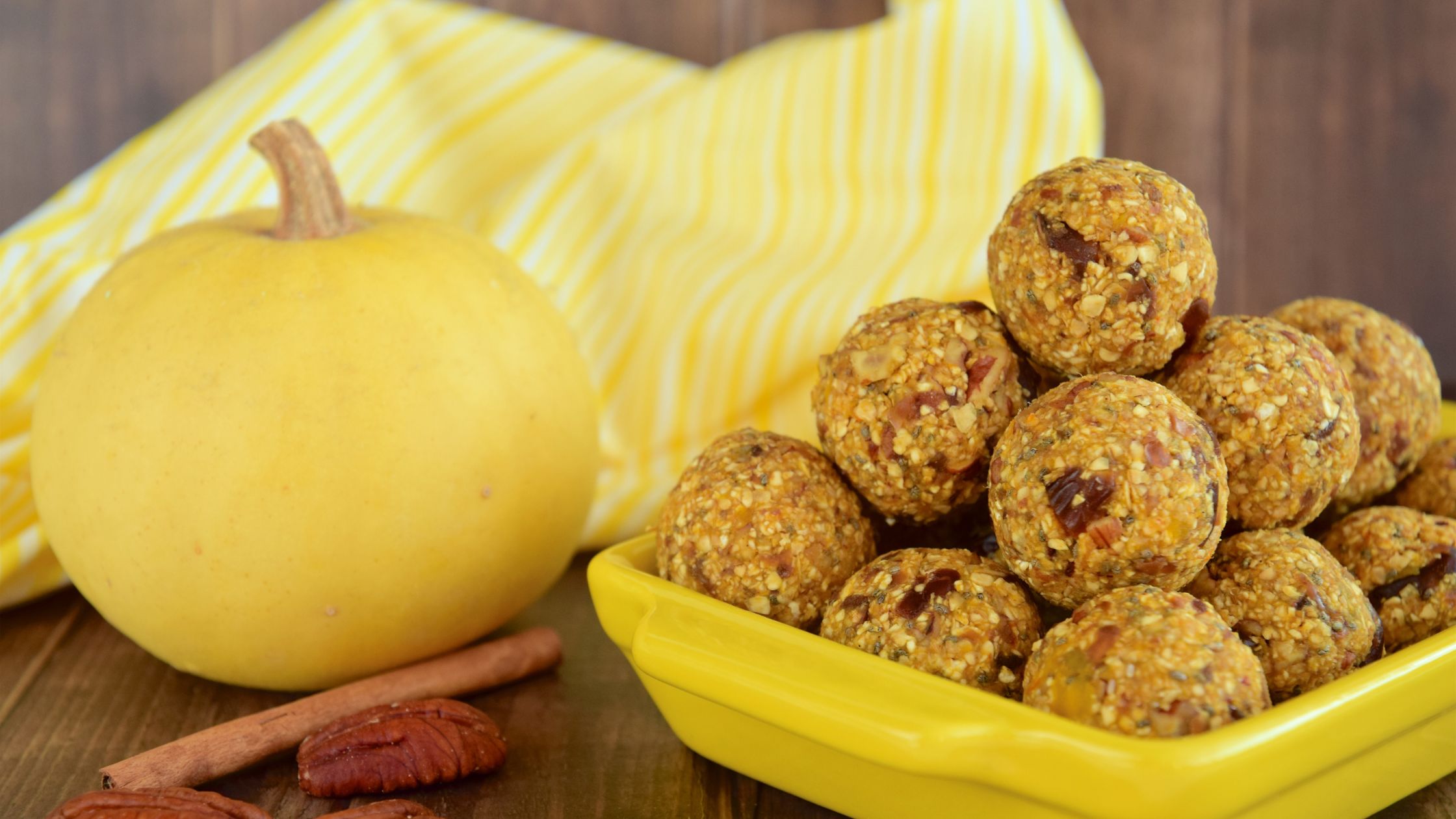
Using ½ C. pumpkin puree, either homemade or from a can (not canned pumpkin pie mix, that’s a different thing altogether), add 2/3 C. almond butter, 2 ½ C. old-fashioned oats, ¼ C. ground flax seeds, and a little honey or maple syrup for sweetness. If desired also add pumpkin spice to taste. Roll into a ball and store in the fridge for a convenient snack.
Pumpkin Pancakes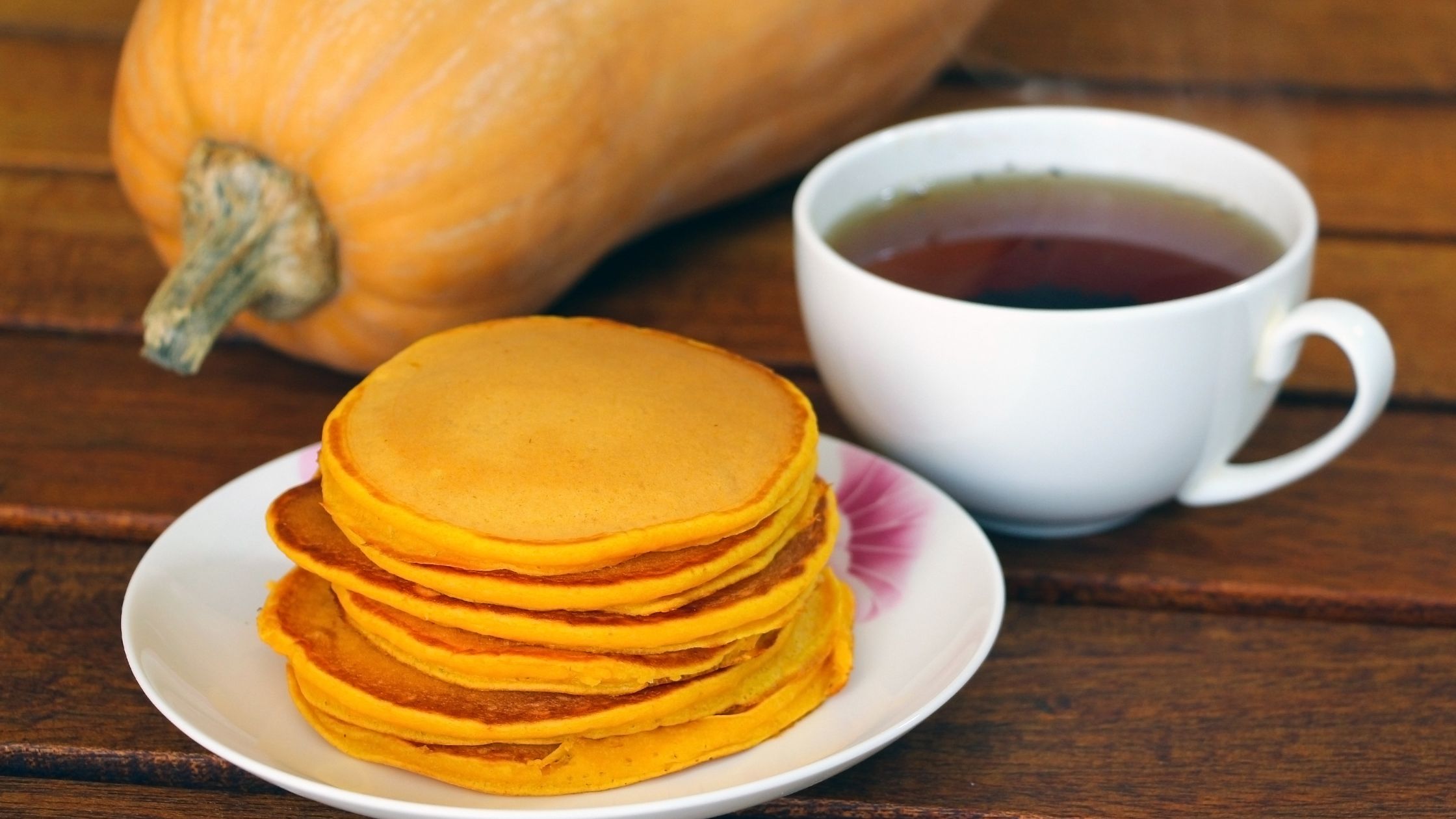
Add a scoop of pumpkin puree and a dash of pumpkin spice to your favorite pancake batter. You may need a tiny bit more flour or nut meal to make up for the wetness of the pumpkin but the results will be delicious!
Pumpkin Overnight Oats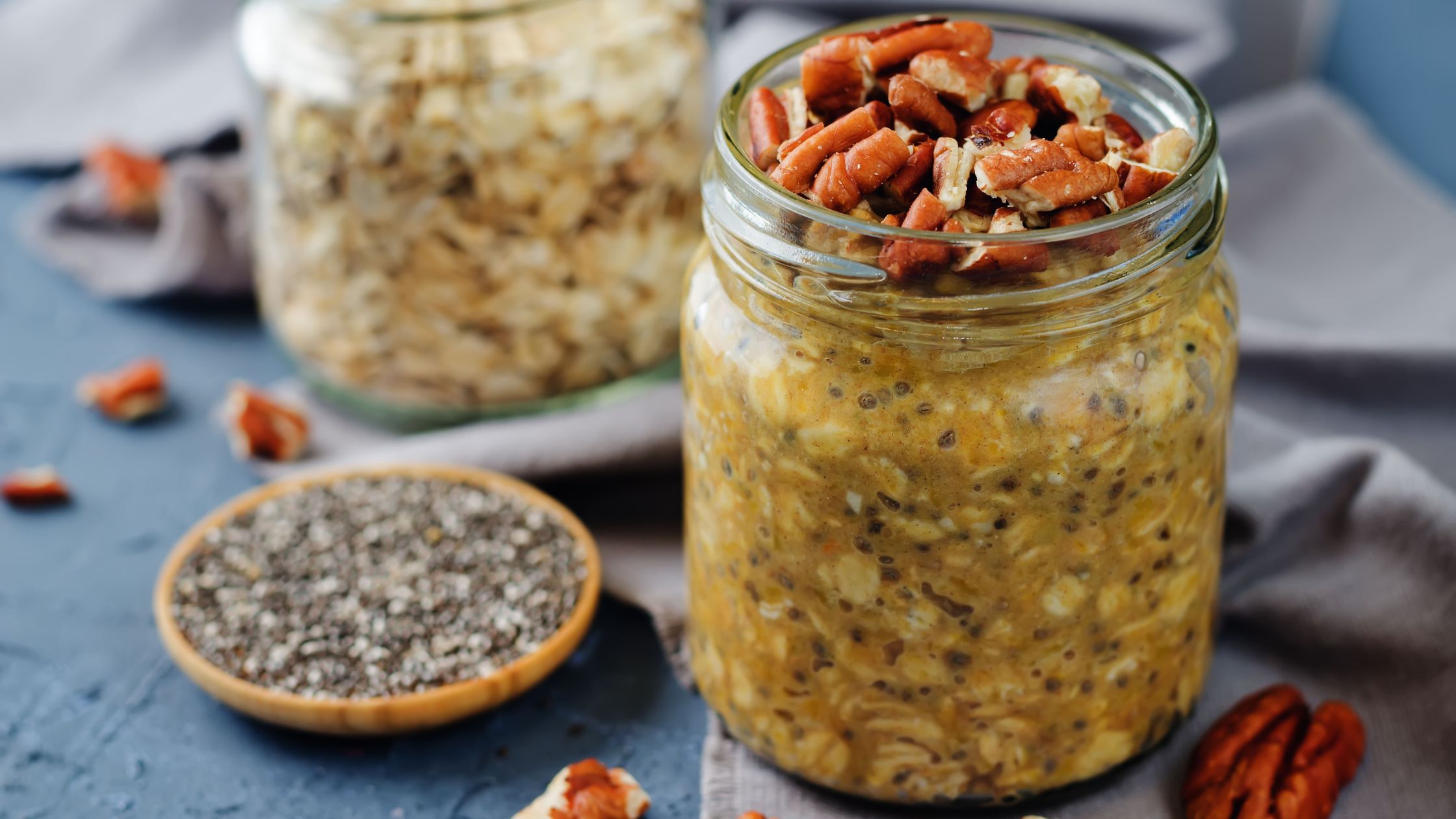
Instead of yogurt combine your old-fashioned oats with almond milk and pumpkin puree and let it sit overnight. If you’d like you can add a little maple syrup and top with chopped pecans for a fabulous Fall anytime treat.
When making a basic soup (onions, celery, and broth) add a healthy dollop of pumpkin puree and a little cashew milk to make a wonderful Fall soup. Garnish with pumpkin seeds for a little crunch and a nutritional boost
But those aren’t the only ways you can add pumpkin to your diet. Here are some of my favorite pumpkin recipes on the blog:
Sources
Jahan, Kausar et al. "Dietary Fiber As A Functional Food". Functional Food Products And Sustainable Health, 2020, pp. 155-167. Springer Singapore, doi:10.1007/978-981-15-4716-4_10.
Katagiri, Ryoko et al. "Dietary Fiber Intake And Total And Cause-Specific Mortality: The Japan Public Health Center-Based Prospective Study". The American Journal Of Clinical Nutrition, vol 111, no. 5, 2020, pp. 1027-1035. Oxford University Press (OUP), doi:10.1093/ajcn/nqaa002.
Miyazawa, Itsuko et al. "Relationship Between Carbohydrate And Dietary Fibre Intake And The Risk Of Cardiovascular Disease Mortality In Japanese: 24-Year Follow-Up Of NIPPON DATA80". European Journal Of Clinical Nutrition, vol 74, no. 1, 2019, pp. 67-76. Springer Science And Business Media LLC, doi:10.1038/s41430-019-0424-y.
ZX, Wang et al. "[Comparison Of Lutein, Zeaxanthin And Β-Carotene Level In Raw And Cooked Foods Consumed In Beijing]". Zhonghua Yu Fang Yi Xue Za Zhi [Chinese Journal Of Preventive Medicine], vol 45, no. 1, 2011, p. ., https://pubmed.ncbi.nlm.nih.gov/21418822/.
Eisenhauer, Bronwyn et al. "Lutein And Zeaxanthin—Food Sources, Bioavailability And Dietary Variety In Age‐Related Macular Degeneration Protection". Nutrients, vol 9, no. 2, 2017, p. 120. MDPI AG, doi:10.3390/nu9020120.
Jia, Yu-Ping et al. "The Pharmacological Effects Of Lutein And Zeaxanthin On Visual Disorders And Cognition Diseases". Molecules, vol 22, no. 4, 2017, p. 610. MDPI AG, doi:10.3390/molecules22040610.
Zhou, Yunping et al. "Association Of Carotenoids With Risk Of Gastric Cancer: A Meta-Analysis". Clinical Nutrition, vol 35, no. 1, 2016, pp. 109-116. Elsevier BV, doi:10.1016/j.clnu.2015.02.003.
Ge, Xiao-Xiao et al. "Carotenoid Intake And Esophageal Cancer Risk: A Meta-Analysis". Asian Pacific Journal Of Cancer Prevention, vol 14, no. 3, 2013, pp. 1911-1918. Asian Pacific Organization For Cancer Prevention, doi:10.7314/apjcp.2013.14.3.1911.
Huang, Xiaoyi et al. "Association Between Vitamin A, Retinol And Carotenoid Intake And Pancreatic Cancer Risk: Evidence From Epidemiologic Studies". Scientific Reports, vol 6, no. 1, 2016. Springer Science And Business Media LLC, doi:10.1038/srep38936.
Academic.Oup.Com, 2022, https://academic.oup.com/ajcn/article/96/5/1179S/4577133.
Stahl, Wilhelm, and Helmut Sies. "Β-Carotene And Other Carotenoids In Protection From Sunlight". The American Journal Of Clinical Nutrition, vol 96, no. 5, 2012, pp. 1179S-1184S. Oxford University Press (OUP), doi:10.3945/ajcn.112.034819.
Pandel, Ruža et al. "Skin Photoaging And The Role Of Antioxidants In Its Prevention". ISRN Dermatology, vol 2013, 2013, pp. 1-11. Hindawi Limited, doi:10.1155/2013/930164.
Whitehead, Ross D. et al. "You Are What You Eat: Within-Subject Increases In Fruit And Vegetable Consumption Confer Beneficial Skin-Color Changes". Plos ONE, vol 7, no. 3, 2012, p. e32988. Public Library Of Science (Plos), doi:10.1371/journal.pone.0032988.

